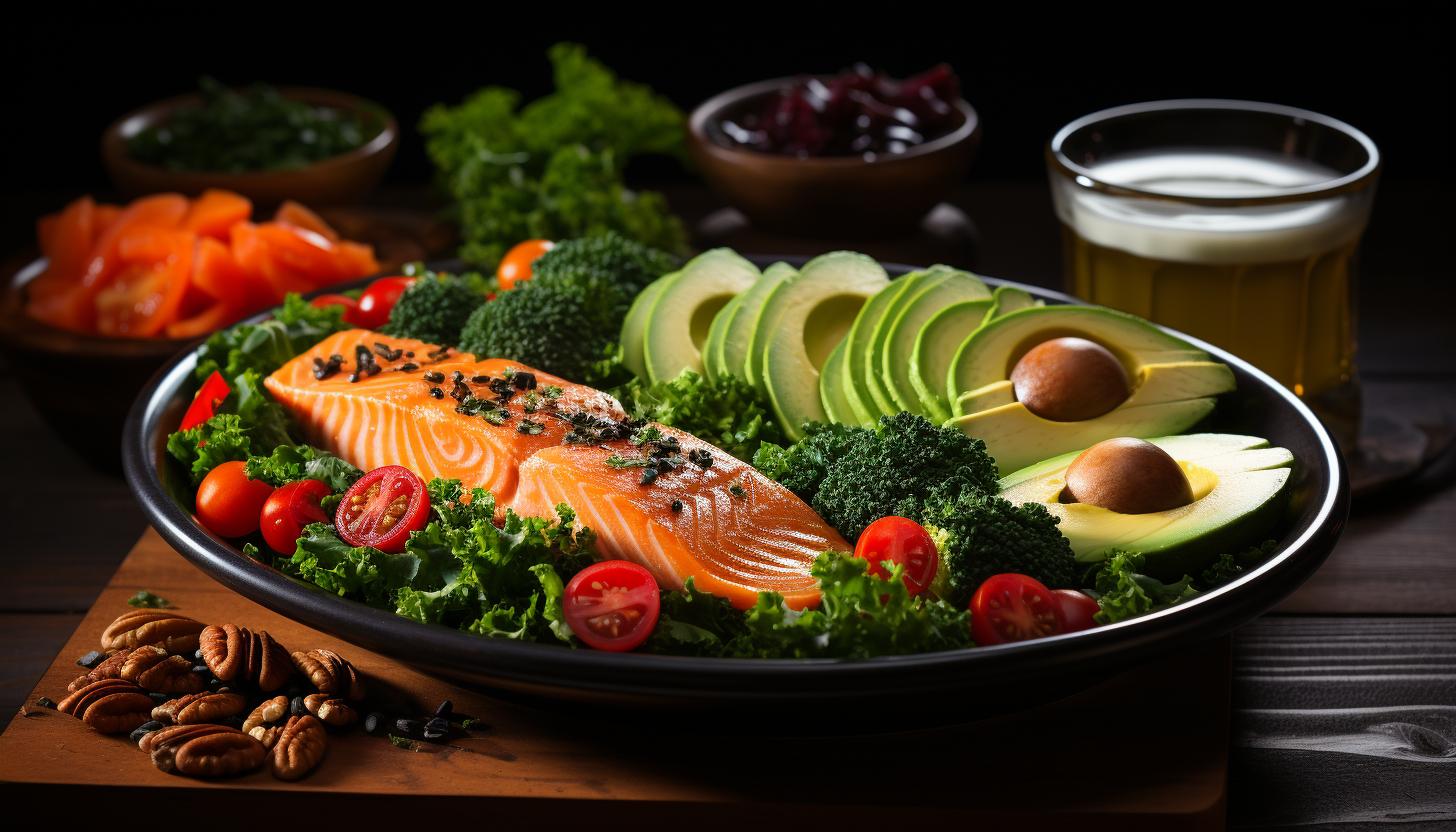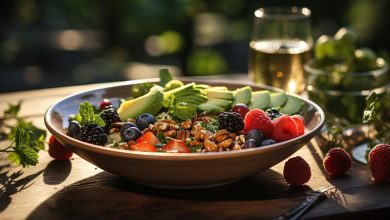The Impact of Different Diets (Such as Keto or Paleo) on Running Performance

Picture yourself sprinting through the finish line, your body fueled by the power of a carefully curated diet.
In this article, we delve into the impact of different diets – such as keto and paleo – on your running performance. By understanding the science behind these dietary choices, you can unlock the potential to elevate your endurance and achieve new personal bests.
We’ll explore the benefits and drawbacks of each diet, providing practical tips for seamlessly incorporating them into your running routine.
The Science Behind Different Diets and Running Performance

The science behind different diets and running performance is still being researched and debated. When it comes to running, what you eat plays a crucial role in your performance.
Carbohydrates are the primary source of fuel for endurance activities like running. They provide the energy needed to power through long runs and maintain optimal performance. By consuming carbohydrates before and during exercise, you can replenish glycogen stores and delay fatigue.
Protein intake also has a significant impact on endurance running. It helps repair and rebuild muscle tissues damaged during intense workouts, promoting faster recovery. Consuming an adequate amount of protein can improve muscle strength, endurance, and overall performance.
It’s important to note that individual needs may vary based on factors such as training intensity, body composition, and personal goals. While some athletes may benefit from low-carb or high-protein diets, others may perform better with a balanced macronutrient intake.
To optimize your running performance, consider consulting with a registered dietitian who specializes in sports nutrition. They can assess your specific needs and develop a personalized dietary plan that aligns with your goals.
Understanding the Ketogenic Diet and Its Effects on Running Performance

Understanding the ketogenic diet and its impact on running performance is crucial for athletes. The ketogenic diet, which involves consuming high levels of fat and low levels of carbohydrates, has become increasingly popular. Recent research has shown promising benefits of this diet for running performance.
Studies have demonstrated that following a ketogenic diet can lead to improvements in endurance and the utilization of fat during exercise. When you consume fewer carbohydrates, your body begins to rely on stored fats as its primary source of fuel. This can be advantageous for runners, as it allows them to tap into their abundant fat stores and conserve glycogen, which is essential for high-intensity efforts.
Furthermore, research suggests that the ketogenic diet may enhance recovery after intense training sessions or races. By reducing inflammation and oxidative stress in the body, this dietary approach may help athletes bounce back faster from workouts and reduce muscle soreness.
However, it is important to note that transitioning to a ketogenic diet can be challenging initially. Your body needs time to adapt to using fat as its main energy source instead of carbohydrates. It is recommended to gradually reduce carbohydrate intake while increasing healthy fats in your diet.
Exploring the Paleo Diet and Its Impact on Running Performance

Exploring how the Paleo diet affects running performance can provide valuable insights for athletes. Many runners are curious about the potential benefits of following a Paleo diet, which is based on eating foods that our ancestors would have consumed during the Paleolithic era. Here are three key factors to consider when analyzing Paleo’s impact on running performance:
1. Endurance: The Paleo diet emphasizes whole, unprocessed foods such as lean meats, fish, fruits, vegetables, nuts, and seeds. These nutrient-dense foods can support endurance by providing sustained energy and reducing inflammation. However, some runners may find it challenging to consume enough carbohydrates for optimal performance on a low-carb Paleo diet.
2. Recovery: Proper recovery is essential for optimizing running performance and preventing injuries. The Paleo diet’s focus on high-quality protein sources can aid muscle repair and growth after intense workouts. Additionally, the anti-inflammatory properties of many Paleo foods may help reduce exercise-induced muscle damage.
3. Individual Variability: It’s important to remember that each runner is unique and may respond differently to dietary changes. Some athletes thrive on a Paleo diet while others may not experience significant improvements or may even struggle with certain aspects like meeting their carbohydrate needs.
To determine if the Paleo diet is right for you as a runner, it’s crucial to consult with a registered dietitian who specializes in sports nutrition and consider your individual goals and preferences alongside scientific evidence.
Comparing the Benefits and Drawbacks of Keto and Paleo Diets for Runners

When considering the benefits and drawbacks of keto and paleo diets for runners, it’s important to consult with a registered dietitian who specializes in sports nutrition.
While both diets have gained popularity, they have different effects on running performance.
The keto diet, which is low in carbohydrates and high in fats, has been praised for its potential weight loss benefits. By restricting carbohydrate intake, the body is forced to burn stored fat for fuel instead of relying on glucose from carbs. This can lead to significant weight loss, which may be beneficial for runners aiming to improve their speed or reduce joint stress.
On the other hand, the paleo diet restricts processed foods and focuses on whole foods that our ancestors would have consumed. While this approach can provide a wide range of nutrients, it may not be ideal for long-distance runners due to its limited carbohydrate content. Carbohydrates are crucial for providing quick energy during endurance activities, and inadequate intake can lead to fatigue and poor performance.
It’s important to note that individual preferences and training goals should also be considered when choosing a dietary approach as no one-size-fits-all solution exists. Consulting with a registered dietitian who specializes in sports nutrition can help tailor a plan that meets your specific needs while optimizing running performance.
Practical Tips for Incorporating Keto or Paleo Diets Into Your Running Routine

To successfully incorporate the keto or paleo diets into your running routine, it’s essential to gradually adjust your carbohydrate intake and focus on nutrient-dense whole foods. These diets can be beneficial for marathon training as they promote fat adaptation and stable blood sugar levels, but managing energy levels can be a challenge.
Here are some practical tips to help you navigate this process:
1. Gradual Transition: Start by slowly reducing your carbohydrate intake over a few weeks while increasing healthy fats and protein sources. This allows your body to adapt to using fat for fuel more efficiently.
2. Prioritize Nutrient-Dense Foods: Focus on consuming high-quality, whole foods such as lean meats, fatty fish, nuts, seeds, vegetables, and low-sugar fruits. These provide essential nutrients while keeping you satisfied during long runs.
3. Timing of Carbohydrates: Consider consuming small amounts of carbohydrates strategically before or after intense workouts to replenish glycogen stores without disrupting ketosis or causing blood sugar spikes.
Remember that everyone’s nutritional needs may vary, so it’s important to listen to your body and make adjustments accordingly. Consulting with a registered dietitian who specializes in sports nutrition can also provide personalized guidance for incorporating keto or paleo diets into marathon training while effectively managing energy levels during runs.
Conclusion
In conclusion, there is no one-size-fits-all answer when it comes to the impact of different diets on running performance. Both the ketogenic and paleo diets have their own unique effects on running performance. The keto diet may improve endurance by utilizing fat as fuel, while the paleo diet focuses on whole foods for optimal performance. It is important to experiment with these diets and find what works best for you as an individual runner.
Remember, always consult with a healthcare professional or registered dietitian before making any drastic changes to your diet.






